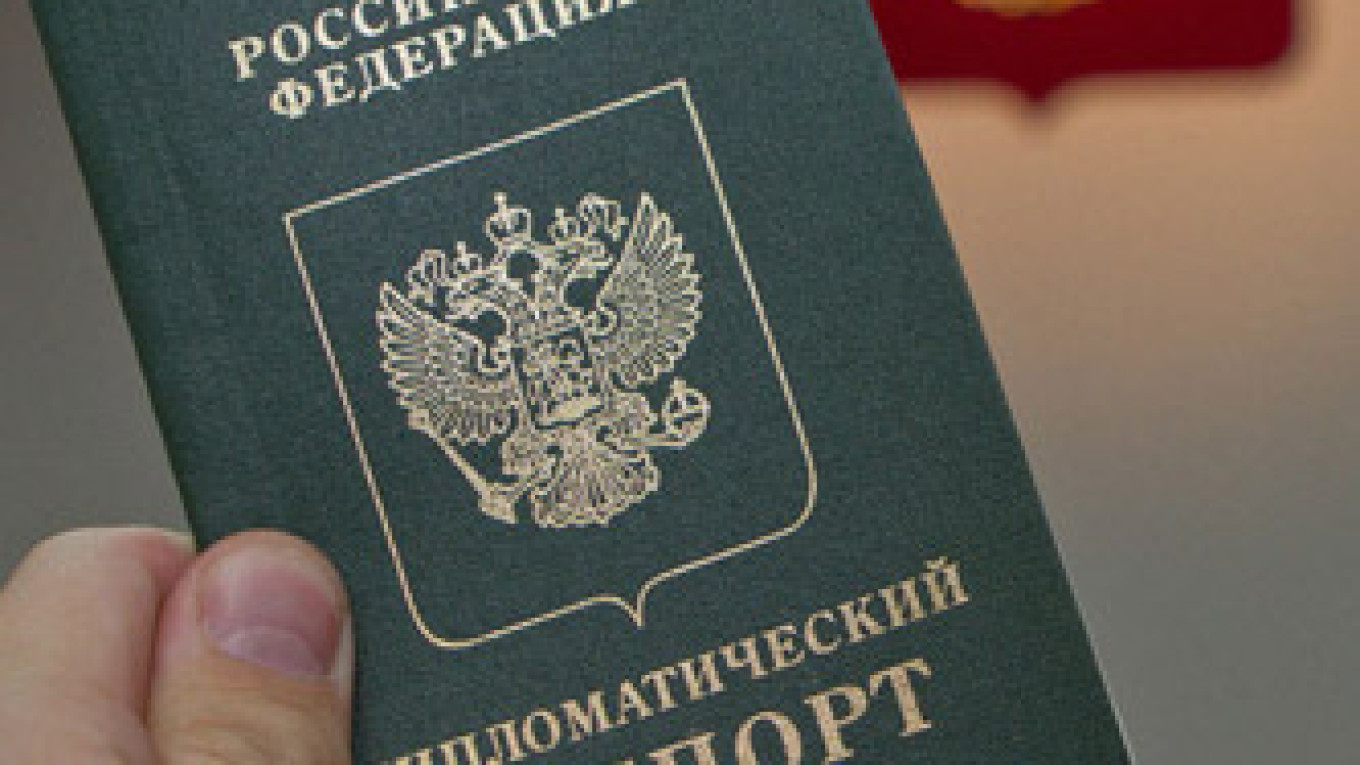The speaker of the State Duma has ordered Russian parliamentarians to surrender their diplomatic passports by the end of the week, the RBC news agency reported Tuesday.
Access to a diplomatic passport features among the perks of being a Russian lawmaker. But Duma deputies are legally obligated to return their passports within three working days of returning from trips abroad. Current regulations also prohibit legislators from using their diplomatic passports for personal purposes, such as vacations, without the hassle of obtaining a visa.
Duma Speaker Sergei Naryshkin wrote a letter to the heads of the legislature's various political factions, stating that at the time more than half of the Duma's 450 lawmakers were in violation of their obligation to hand the documents over.
"In light of the deterioration of [Russia's] relations with the EU and sanctions imposed by the U.S., EU and Japan, Duma deputies' violation of diplomatic passport regulations can have unpredictable consequences," the letter said, RBC reported.
In comments carried by the TASS news agency, Yury Shuvalov, head of the legislature's public relations and media department, said: "The measure is connected to the fact that the system governing the issuance and use of diplomatic passports stopped working the way it should."
An unnamed source in the Duma told RBC that the diplomatic passport troubles could be tied to deputies' forgetfulness and the inconvenience of returning the travel document to the parliament's international office, which is not located in the legislature's main building.
Lawmaker Dmitry Gudkov, who serves as an independent since having been ousted from the party A Just Russia in 2013, said the measure was "humiliating" and corresponded to Russia's "isolation trend." Gudkov said the initiative was aimed at controlling lawmakers' travels, and wrote on his blog that it would prevent opposition-minded legislators like himself from serving as election observers or attending conferences abroad, among other activities.
Contact the author at g.tetraultfarber@imedia.ru
A Message from The Moscow Times:
Dear readers,
We are facing unprecedented challenges. Russia's Prosecutor General's Office has designated The Moscow Times as an "undesirable" organization, criminalizing our work and putting our staff at risk of prosecution. This follows our earlier unjust labeling as a "foreign agent."
These actions are direct attempts to silence independent journalism in Russia. The authorities claim our work "discredits the decisions of the Russian leadership." We see things differently: we strive to provide accurate, unbiased reporting on Russia.
We, the journalists of The Moscow Times, refuse to be silenced. But to continue our work, we need your help.
Your support, no matter how small, makes a world of difference. If you can, please support us monthly starting from just $2. It's quick to set up, and every contribution makes a significant impact.
By supporting The Moscow Times, you're defending open, independent journalism in the face of repression. Thank you for standing with us.
Remind me later.


